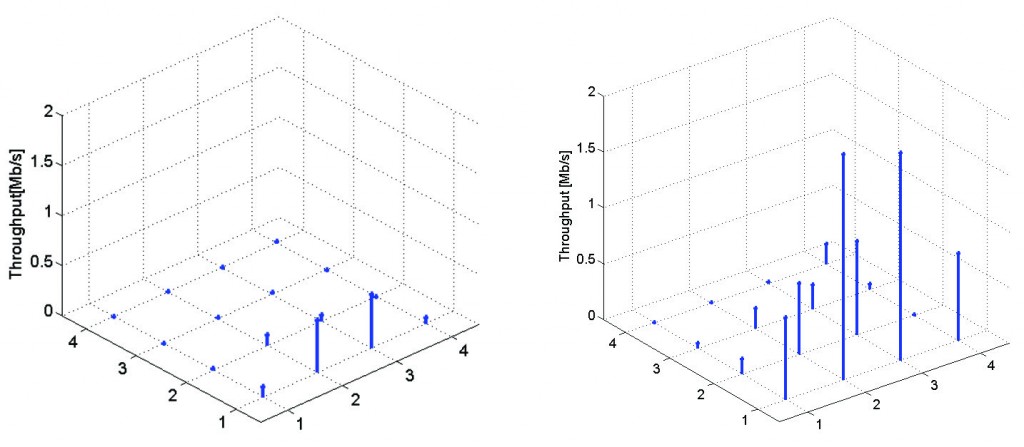Performance of Dual Wi-Fi Radios in Infrastructure-Supported Multi-Hop Networks
In this paper, we evaluate the potential benefits of the dual Wi-Fi radio devices in terms of throughput and energy consumption.
October 17, 2011
IEEE International Conference on Mobile Ad-hoc and Sensor Systems (MASS) 2011
Authors
Fabian Dreier (Disney Research/ETH Joint M.Sc.)
Vladimir Vukadinovic (Disney Research)
Stefan Mangold (Disney Research)
Performance of Dual Wi-Fi Radios in Infrastructure-Supported Multi-Hop Networks
Wireless multi-hop networks are a promising approach to provide connectivity in areas with sparse wireless infrastructure. In multi-hop networks, data is relayed from one mobile device to another until it reaches the destination (e.g. a Wi-Fi access points). Different hops preferably use different radio channels to avoid interfering with each other. It is not practical to use multiple channels with single-radio devices because the network would suffer from partitioning. The addition of the second radio interface to the devices may simplify the multi-channel management and improve the overall network performance. In this paper, we evaluate the potential benefits of the dual Wi-Fi radio devices in terms of throughput and energy consumption. For the evaluation, we use our Wi-Fi network simulator, Jemula802, extended with the models of multi-channel radio management algorithms.

